How many years ago was much of North America (including New York state, and all of Canada) entirely covered in glaciers?
A) 20 years ago
B) 200 years ago
C) 20,000 years ago
D) 20 million years ago
C) 20,000 years ago. This period is called the Last Glacial Maximum.
Which of these animals are you most likely to find in Antarctica?
A) Polar bears
B) Penguins
C) Reindeer
D) All of the above
B) Penguins!
Polar bears and reindeer are found in the Arctic (north pole) but not Antarctica (the south pole).
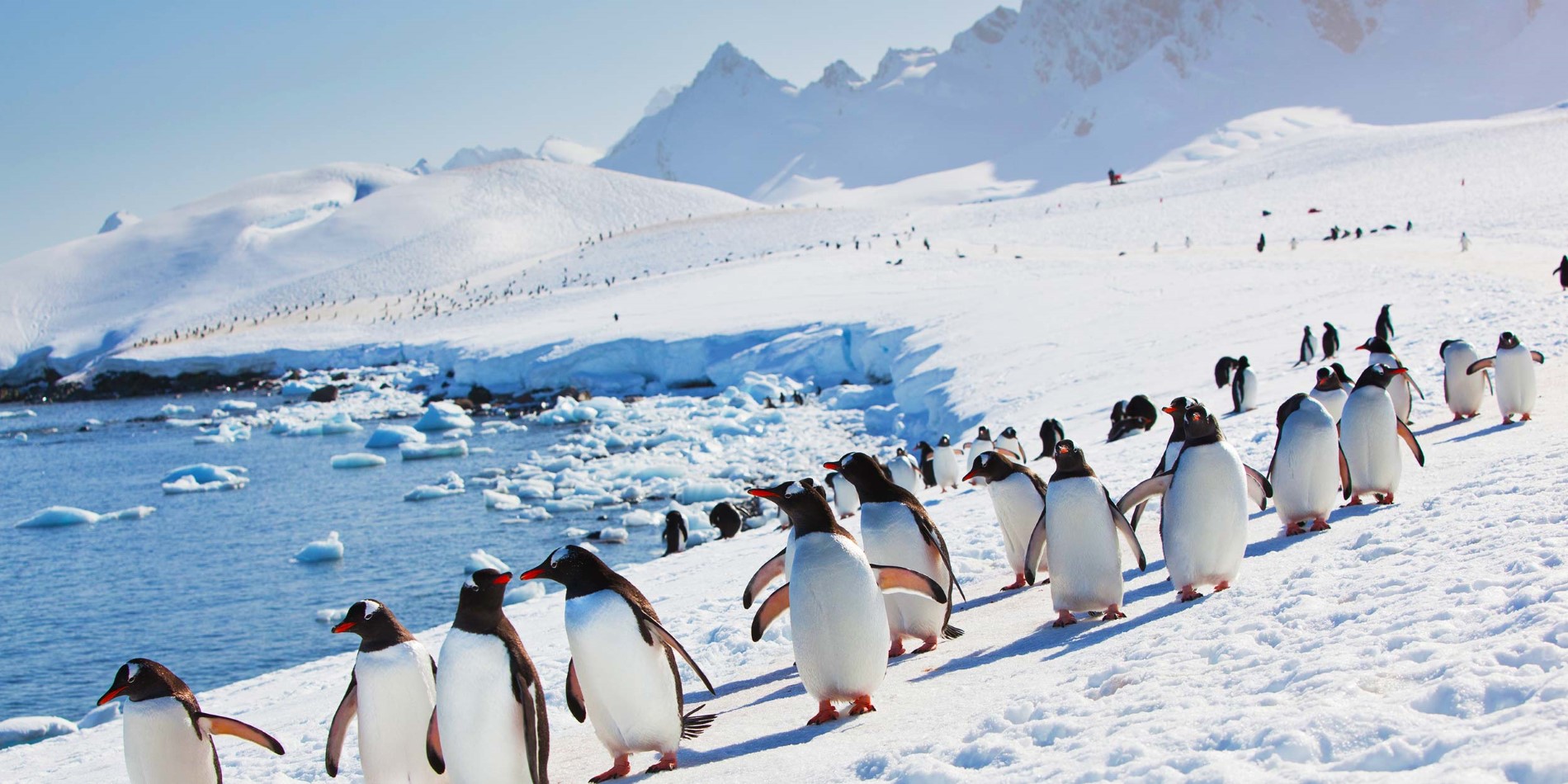
Below is a picture of a glacial erratic in Central Park. How did it get there?

It was picked up and deposited by a glacier!
How much has ice lost from Antarctica contributed to global sea level rise in the last 20 years?
A) 0 inches
B) 1/4 inch
C) 1/2 inch
D) 2 feet
B) 1/4 inch
Which of the following is not part of the definition of a glacier?
A) Heavy enough to move under its own weight.
B) Located near the north or south poles.
C) Survives year-round, even through the summer.
D) Flows like a viscous (syrupy) fluid.
B) Located near the north or south poles.
How old is this oldest ice that has ever been found on earth?
A) 30 years
B) 3 thousand (3,000) years
C) 3 hundred thousand (300,000) years
D) 3 million (3,000,000) years

D) 3 million years
How many people live in Antarctica in the summer? And in the winter?
A) 40 in the summer; 10 in the winter
B) 400 in the summer; 100 in the winter
C) 4,000 in the summer; 1,000 in the winter
D) 40,000 in the summer; 10,000 in the winter
C) 4,000 in the summer; 1,000 in the winter
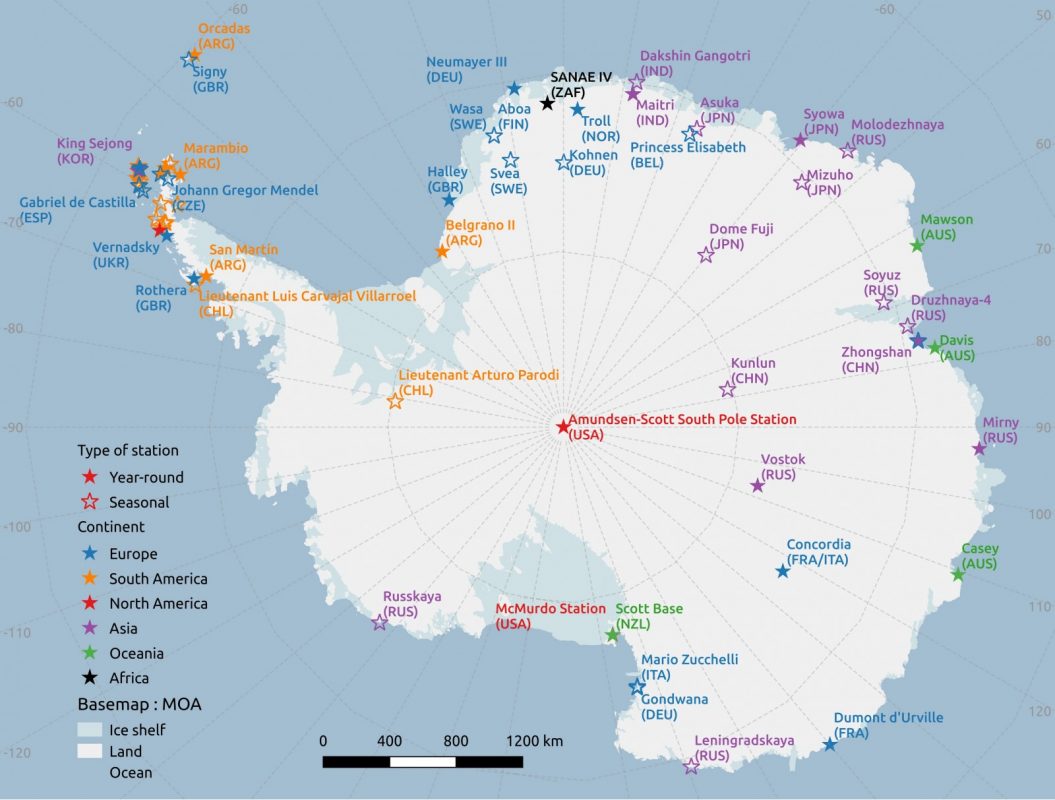
Antarctica is one of the rare places on Earth that does not have an indigenous population - everyone that "lives" there is a visiting researcher, tourist, or supporting staff.
The following picture is of a rock in Central Park with features called glacial striations. What are these, and how did they get there?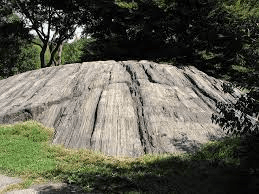
During the last ice age, as glaciers were moving away from the area that is now NYC, glaciers dragged rocks across the bedrock surface, leaving behind these grooves still visible in the rock.
How much has ice lost from Greenland contributed to global sea level rise in the last 2 decades?
A) 0 inches
B) 1/4 inch
C) 1/2 inch
D) 2 feet
C) 1/2 inch
Which of these surfaces do you think reflects the most sunlight?
A) A dark forest
B) The ocean
C) A snowy field
D) A sandy desert
C) A snowy field
Ice and snow help cool down the Earth's surface, because they are white, and therefore reflect more sunlight than darker surfaces (such as ocean or land). This means they have the highest "albedo"!
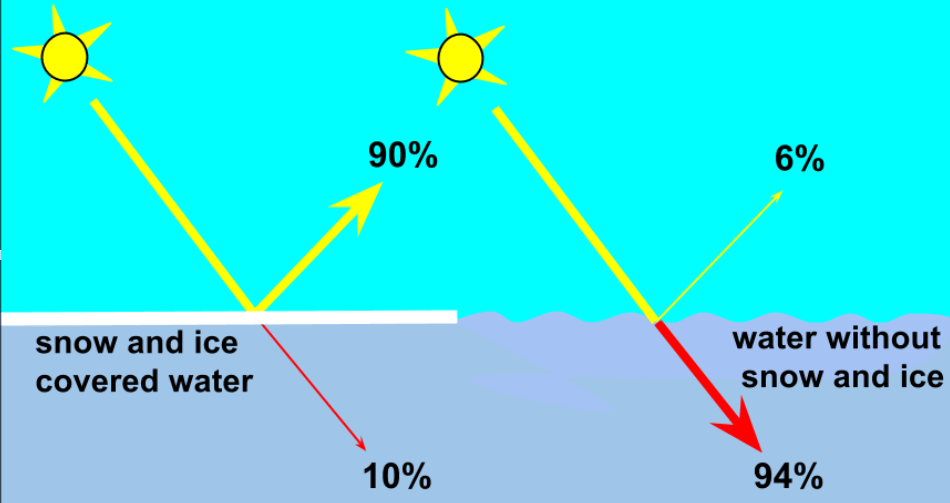
How did early humans migrate to North America (~17,000 years ago)?
A) They walked.
B) They took a boat.
C) They jet skied.
D) They took a plane.
A) They walked! During the last glacial period, when sea levels were lower and much of North America was glaciated, people were able to walk the Bering Land Bridge into North America.
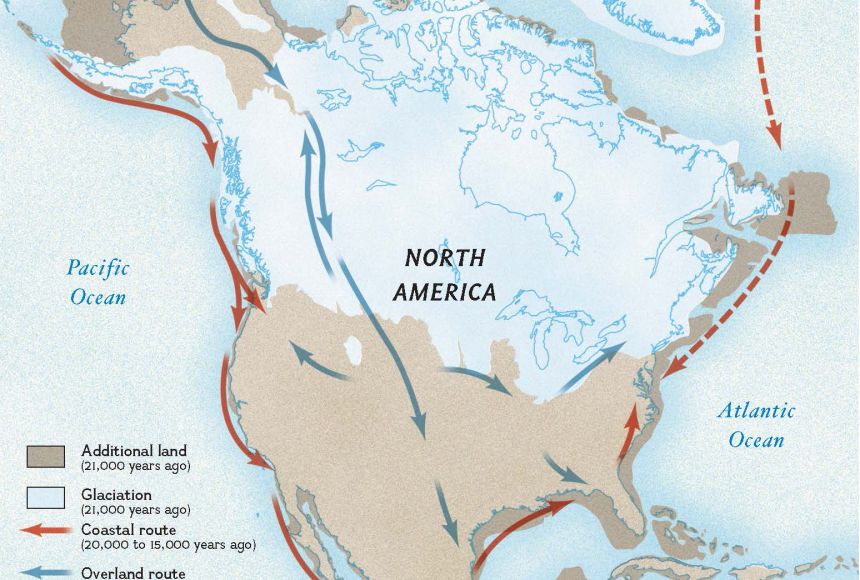
If all of Antarctica melted, how much would sea level go up worldwide?
A) 10 feet
B) 20 feet
C) 100 feet
D) 200 feet
About 200 feet (or 60 meters)!
What is the name of the ice sheet that used to cover New York City?
A) The Fort Greene Preparatory Ice Sheet
B) The Liberty Ice Sheet
C) The Laurentide Ice Sheet
D) The Antarctic Ice Sheet
B) The Laurentide Ice Sheet
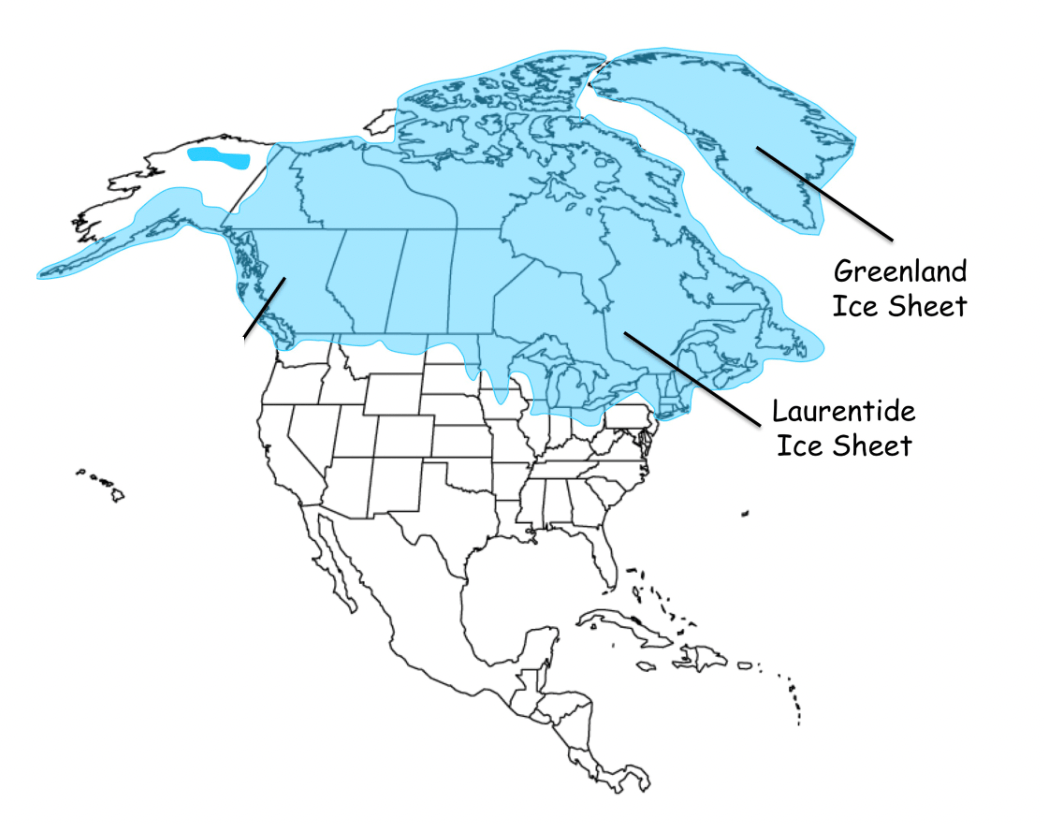
What percentage of Earth's fresh water is stored in glaciers?
A) 25%
B) 50%
C) 75%
D) 100%
C) 75%! The rest is in the ground, or in rivers or lakes.
What word describes the process shown below, where a large iceberg or chunk of ice suddenly breaks off from a glacier?
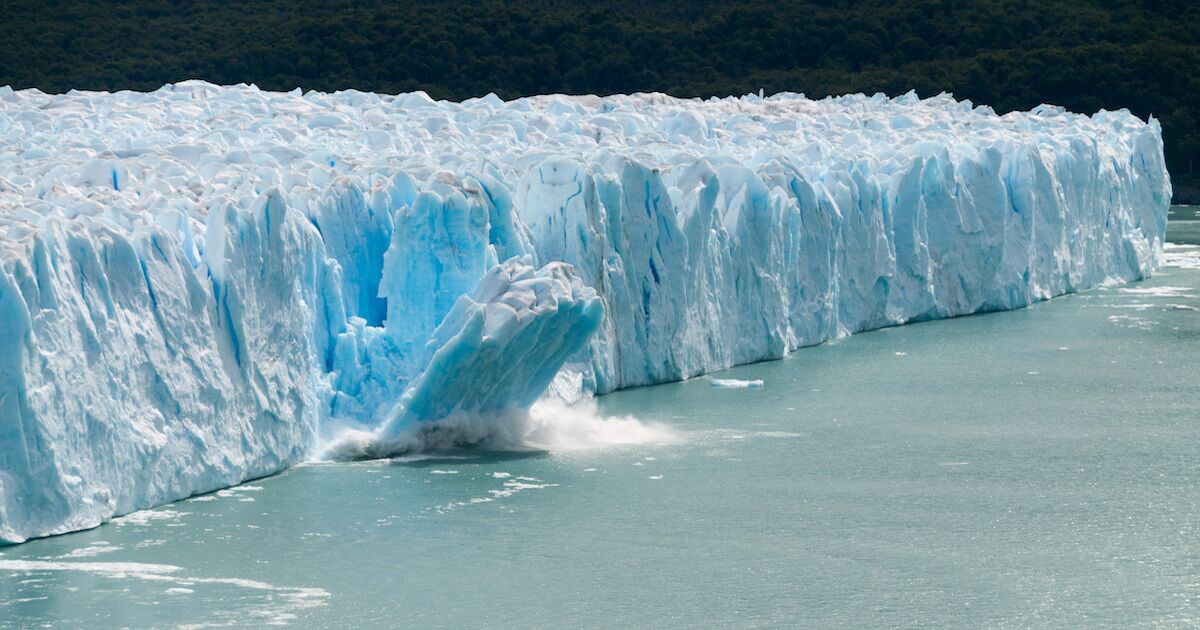
Calving!
Glacier calving is responsible for approximately 1/2 of the ice lost from Antarctica.
Scientists can look at the water molecules in ancient ice to learn about the earth's temperature throughout history. What atoms make up a water molecule?
Two hydrogens and one oxygen (H2O)!
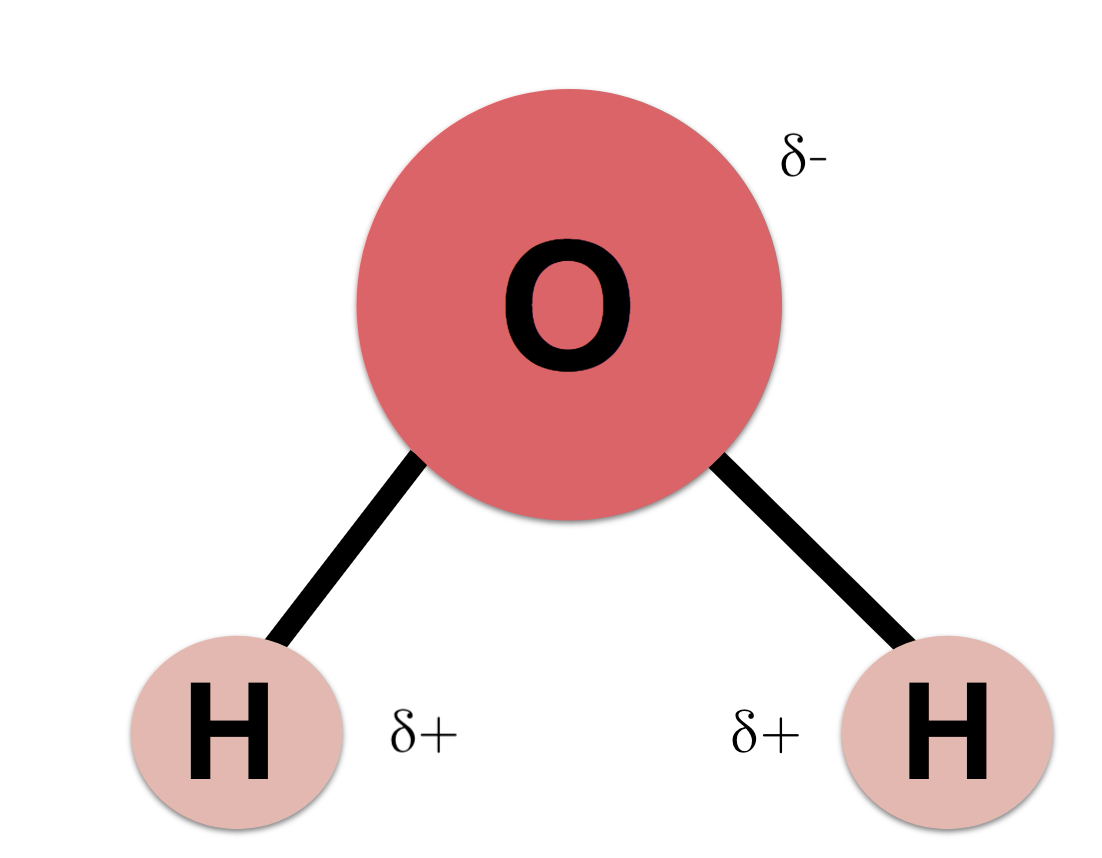
The coldest temperature ever recorded on Earth was at a Russian research station in Antarctica. How cold was it?
A) -13 degrees F
B) -86 degrees F
C) -129 degrees F
D) -212 degrees F
C) -129 degrees F
This was in July 1983.
What body of water in NYC was carved out by glaciers, and once served as the edge of an ice sheet?
The Hudson River

What is the main cause of present-day global sea level rise?
Ice melt! Melting ice sheets and glaciers accounts of 2/3 of global sea level rise.
How many US states have glaciers?
A) 0
B) 8
C) 21
D) 50
B) 8
Alaska, Washington, Oregon, California, Nevada, Colorado, Montana, and Wyoming.